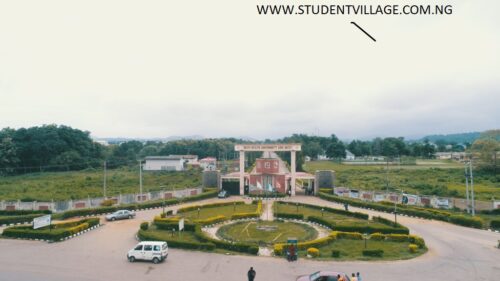Government Keypoints: The Military in Nigerian Politics; This study material is suitable for students sitting for the following exams: JAMB, WAEC, NECO, GCE, IJMB, and JUPEB.
Study more government keypoints here
The involvement of the military in Nigerian politics has been a defining aspect of the country’s history, significantly shaping its political, economic, and social landscape. Understanding the factors behind military intervention, the structure of military regimes, their impacts, achievements, and the processes leading to their disengagement is essential to grasp Nigeria’s political evolution.
a. Factors that Led to Military Intervention:
- Political Instability: Frequent coups were triggered by instability, dissatisfaction with civilian governments, and power struggles among political elites.
- Corruption: Rampant corruption and abuse of power by civilian leaders fueled discontent among the populace.
- Ethnic Tensions: Ethnic and regional rivalries contributed to political instability.
- Ineffective Governance: Ineptitude and mismanagement by civilian leaders led to economic downturns.
- Social Unrest: Protests and public dissatisfaction with governance heightened the military’s appeal as a solution.
- Weak Democratic Institutions: Fragile democratic structures failed to address social and economic challenges effectively.
i. Evaluation of the Reasons for Military Intervention:
Assessing these reasons demonstrates the dire conditions that propelled the military to intervene, aiming to restore stability and address perceived failures of civilian governments.
b. Structure of Military Regimes:
Military regimes were characterized by hierarchical structures, often led by a Head of State, backed by a Supreme Military Council or an Armed Forces Ruling Council. Decisions were centralized, and martial law was frequently imposed.
c. Impact of Military Rule:
- Political Impact: Military rule saw the creation of states, the introduction of unitary systems like the Unification Decree NO. 34, and the stifling of democratic processes.
- Economic Impact: Implementation of Structural Adjustment Programs (SAP) resulted in economic reforms, albeit with adverse effects on the populace, including austerity measures and economic hardships.
ii. Assessment of Major Achievements of Military Rule:
- Creation of States: Decentralization through state creation addressed ethnic tensions.
- Infrastructure Development: Investments in infrastructure projects.
- Economic Policies: Implementation of SAP aimed at economic restructuring.
- Centralization of Power: Introduction of unitary systems aimed at governance efficiency.
- Peacekeeping Efforts: Active participation in peacekeeping missions across Africa.
- Technology Advancements: Investments in technological advancements.
d. Processes of Military Disengagement:
Factors such as international pressure, demands for democracy, and internal discontent compelled military disengagement from governance.
iii. Conditions Necessitating Withdrawal from Governance:
- Pressure for Democracy: Calls for democratic governance increased domestically and internationally.
- International Diplomacy: Global pressures and diplomatic sanctions urged a return to civilian rule.
- Civil Society Mobilization: Active civil society movements advocating for democratic governance.
- Economic Challenges: Persistent economic issues necessitated governance reforms.
Assessing these conditions underscores the shift towards a democratic dispensation and the pushback against prolonged military rule in Nigeria.







